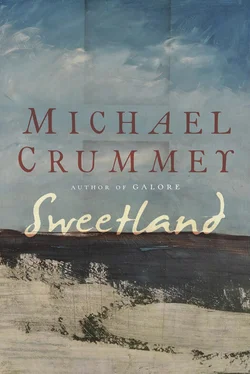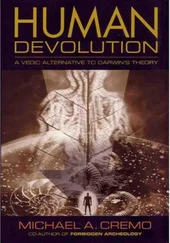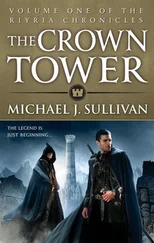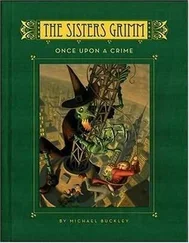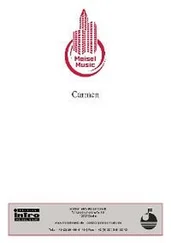“A silver lining to every cloud.”
“Come over tonight,” Pilgrim said, “after the youngster’s gone to bed. We’ll see how it goes.”
He watched the house from his kitchen window that evening and waited half an hour after Jesse’s light went out. Walked around to the back door and let himself in. Pilgrim called from the living room and Sweetland went along the narrow hall, stood there in the doorway.
“How’s the house?” he asked.
“Everyone’s grand,” Pilgrim said.
Clara didn’t turn her head from the television and Sweetland thought it was a mistake to have come. “What is it you’re watching?”
“ Mad Men ,” Pilgrim said. “Clara can’t get enough of it.”
Sweetland glanced at the screen. An office of impeccably dressed men from another age, all of them smoking like tilts. Pilgrim got up from his seat. “You’ll have a drink,” he said and went by Sweetland to the kitchen. “Go in and sit down.”
He took a chair just inside the doorway, his eyes on the television. Every fifteen seconds someone lit up a fresh cigarette. It made him crave one himself.
“When was it you quit smoking?” Clara asked, as if she could sense that urge rising in him.
“I don’t know. Sometime after your mother died.”
“She was always after you to give them up, I remember.”
“Ruthie was always after me to do one thing or another. Thought I needed mothering, I spose.”
“She thought you needed a wife, more like it.”
“Well,” he said. And he shrugged at the television.
“I remember you used to let me light them for you.”
He looked at her. “I never no such thing,” he said.
“You did,” she insisted. “I’d sit in your lap and strike the match on the side of the box.”
“How old were you?”
“I don’t know,” she said. “Five or six.”
“Ruthie must have loved that.”
“Mom never knew a thing about it,” Clara said. And then she said, “I can’t believe you forgot about that.”
“More can I,” he said. He hated confronting those lost moments, being presented with some detail from his past and having to look on it like a stranger. It made his life feel like a made-up thing. A net full of holes.
“I still expect to see you with a cigarette, for some reason. Even after all this time.”
“I could light one up, if that’d make you feel better.”
“There’s only one thing would make me feel better about you.”
He turned back to the television.
“It wouldn’t be the end of the world, would it?” she said. “To live somewhere else?”
Pilgrim appeared in the doorway, holding a drink. “Moses,” he said, “where are you?”
“In hell, I think,” Sweetland whispered.
The drink was rye and water without ice. Pilgrim hadn’t brewed shine since Clara came back to Sweetland with Jesse in tow. Couldn’t make it cheap enough anymore to compete with the controller’s liquor, he said.
They watched the rest of the show in silence but for Clara setting the scene for Pilgrim now and again. They’re in a car, she’d say. He’s in a motel room with his secretary. Sweetland and Clara talked aimlessly during the commercials while Pilgrim was making fresh drinks in the kitchen and he tried to keep clear of anything that might sour the visit. Before he left, Sweetland said, “Be all right if I looked in on him a minute?”
“Don’t wake him,” she said. “He’ll be up half the night.”
Sweetland went up the stairs with a hand to the rail, padded along the hall to Jesse’s room. The door was closed and Sweetland turned the knob carefully. Eased it open and listened awhile to be sure he hadn’t disturbed the sleeper. The boy was on his back with all the sheets kicked to the foot of the bed. One knee propped against the wall, both arms flung above his head. He was wearing the only pyjamas he would consent to put on, a pair he’d outgrown years before and refused to surrender, though the sleeves came almost to his elbows, the pant legs rising halfway up his shins. Clara had been trying to get him into something new for months, going so far as to ask for Sweetland’s help cajoling.
Jesus, Sweetland told him, you looks like a streel in those machines.
Don’t care, Jesse said.
You looks like one of them street urchins got no one belonged to them.
Don’t care, Jesse repeated.
The pyjamas made him look hopelessly vulnerable in his bed, his limbs like pale shoots growing out of the fabric, the smooth expanse of his belly exposed. The little well of the navel a thimbleful of darkness. Jesse’s face was turned toward the door but angled unnaturally up toward the headboard. He looked like he’d fallen from a height, dropped from a roof-top or a headland and come to rest in that mangled posture. Sweetland wanted to ease the boy’s arms back down at his sides, to straighten the leg crooked against the wall. He wanted to lie down with the boy awhile and listen to him breathe.
He allowed himself to lift the bedsheets up over Jesse’s chest, but wouldn’t even chance touching the youngster’s hair before he left. Closed the door as carefully as he’d opened it, made his way back downstairs to the living room where he said his good-nights. He mentioned going out after a few cod when the food fishery opened and said that Jesse was welcome to come if he wanted. And he walked drunkenly home, with no idea if Clara would allow it or not.
She brought Jesse down to the government wharf two days later, the boy carting their lines coiled in plastic tubs, Pilgrim following behind. Sweetland reached a hand up as the boy climbed into the boat and Jesse turned into his belly to hug him briefly. The first time in years.
Clara helped Pilgrim down and handed their gear to Sweetland. “Make sure he keeps his lifejacket on,” she said.
“Have you got a lifejacket for Hollis?” Jesse asked.
“Hollis is staying home out of it with your mother,” Pilgrim said.
Clara looked down at Sweetland, apologetic.
“Hollis can come if he wants,” Sweetland said. “But I got neither lifejacket for him.”
Jesse mumbled a few words to the air beside him and then nodded, listening. “Hollis says he don’t need one,” he announced.
It promised to be a large day, clear skies and hardly a breath of wind. Sweetland let Jesse take the boat around the breakwater and he glanced back into the cove as they made the turn, the remains of his stagehead a dark smudge on the view, the blackened timbers awash at high tide. Jesse asked a stream of questions about the fire, wanting to know how it started and how hot the fire might have been and if Sweetland planned to build another stage. Sweetland was as evasive as he could manage as the boy pressed on about who might have set the fire and why they might have done it. “No telling people’s minds” was all he said about it.
Just as they turned into open water, a harbour porpoise kicked up off the bow. Jesse shouted and pointed as the porpoise veered down and away from the boat.
“Puffin pig,” Sweetland said, using the name he’d grown up with.
“It’s not a pig,” Jesse insisted. He offered the proper name and then spelled it, to underline its propriety.
“Pardon me, Your Highness,” Sweetland said, and he waited then for Jesse to ask about the pig they’d had when Sweetland was a youngster. But the habitual question never came, lost in the novelty of steaming out to the ledge, Sweetland guessed, the prospect of going after the cod. Though it felt like another crack showing in their lives together. The boy as good as gone already.
They motored on to Saturday Ledge where he cut the engine. They let out their lines until the jiggers touched bottom, brought them up a yard and started into the work of it, hauling and releasing the full length of their arms. It was the first day of the food fishery and there were boats up and down the shore, on the Shag Rocks, on the Offer Ledge, on Pilgrim’s Shoal, and away out to the Mackerel Cliffs at the south end. It almost looked like old times on the water, everyone at the cod.
Читать дальше
